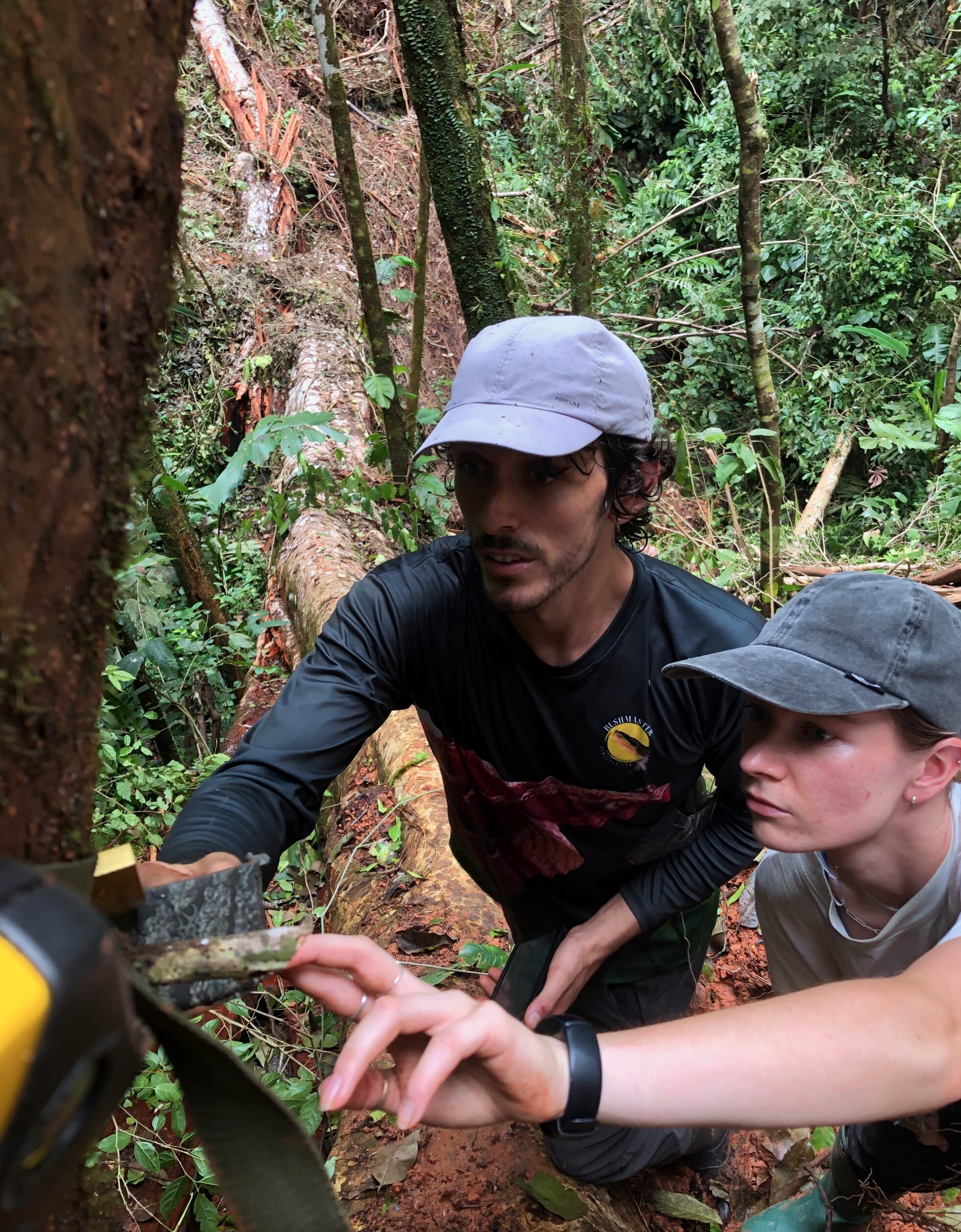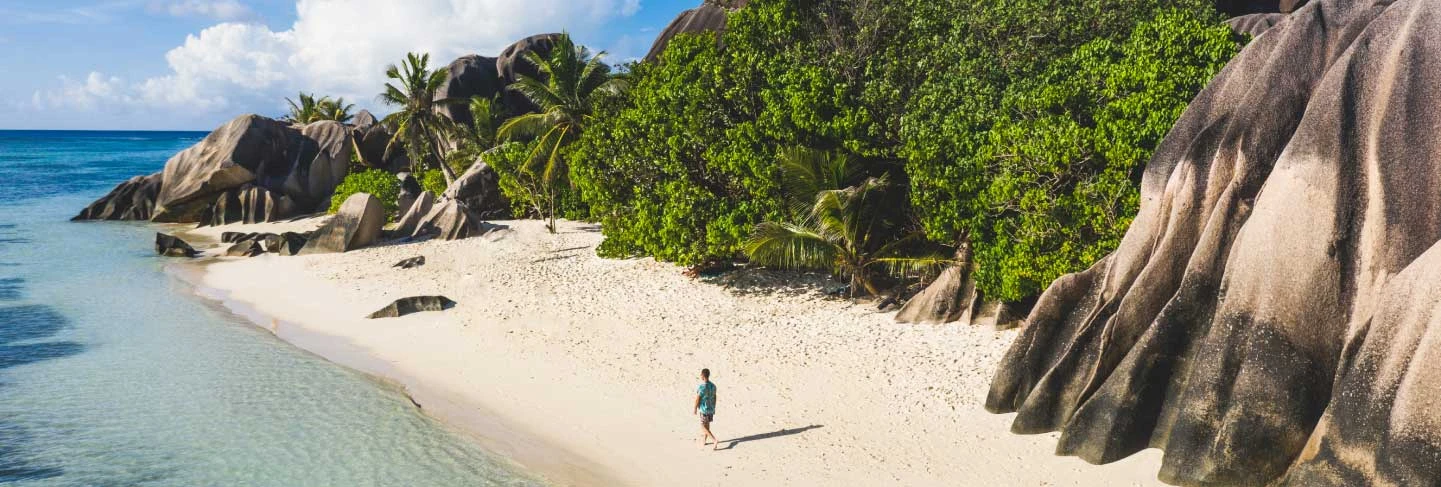Volunteer in Costa Rica
The adventure of a lifetime in a remote paradise.
Elusive wildcats. Prehistoric sea turtles. Abundant birdlife. Join one of our Costa Rica wildlife or coastal volunteer or internship programs and find yourself immersed in a tropical terrain teeming with thousands of species, while helping to protect the area against habitat loss.
Why volunteer in Costa Rica?
Did you know that Costa Rica accounts for only 0,03% of the world’s surface area, but contains more than 5% of its biodiversity? When you join a volunteer program in Costa Rica, you’ll live and work in the heart of the tropical jungle or on the Caribbean coast.
Costa Rica’s diverse ecosystems
Costa Rica has an incredible variety of terrains, offering challenging hiking through jungles and rolling hills. You’ll find yourself surrounded by a multitude of different ecosystems where many different types of fauna and flora flourish.
On a wildlife volunteer program in Costa Rica, you’ll experience a country bursting with biodiversity and see first-hand the types of plants and animals that are found in its forested peaks and flatlands. Our wildlife conservation volunteer work in Costa Rica includes projects where you could work towards the conservation of:
- Tropical birds.
- Reptiles and amphibians.
- Ocelots, pumas and other jungle cats.
- Sea turtles.
- Hundreds of species of frogs and reptiles.
- Monkeys, sloths, coatis and porcupines.
On a coastal conservation volunteer program in Costa Rica, you’ll experience the Limón province of Costa Rica, known for its stunning coastline and unique blend of protected rainforest and marine ecosystems. Our coastal conservation volunteer work in Costa Rica includes projects where you could work towards the conservation of:
- Leatherback sea turtles
- Hawksbill sea turtles
- Green sea turtles
- Reptile, mammal and bird biodiversity
It’s no coincidence that our volunteer programs in Costa Rica are so highly rated. We take every opportunity to make sure that our programs are the best by:
- Contributing towards the United Nations Sustainable Development Goals.
- Collaborating with the local community.
- Focusing on ethical interactions and sustainable solutions.
- Offering ample opportunity to have fun and make a meaningful impact abroad.
Exploring Costa Rica in your free time
Our volunteer projects allow you plenty of free time to explore the surrounding area. From lush rainforests to pristine beaches, there is loads to see and do in the area. Head to Punta Uva beach, where you’ll find kilometres of white sand lined with palm trees, excellent surfing conditions, and exceptional eateries. The famously advanced surfing spot known as Salsa Brava can also be found here.
Other activities include snorkelling among a coral reef in Cahuita National Park, hiking, ziplining and white-water rafting. You could also spend a weekend visiting a nearby town, exploring the cultural sites of the city, visiting a museum, admiring the architecture, and taking note of the birdlife while enjoying a picnic in one of the city’s many parks.
Read more about Costa Rica in this article: Costa Rica Adventure Travel: Thrilling Experiences in Nature’s Playground.
Filter programs
Contribute to sustainable conservation projects led by experts.
Use your unique skills and expertise to support conservation projects.
The adventure of a lifetime while making an impact with a group of like-minded teens.
Generate solutions to help solve conservation challenges through research projects.
Turn your passion into your profession with a three-month placement at an NGO.
Make the most of our unique programs with these exclusively curated local adventure and wellness experiences.
We offer a range of opportunities in Costa Rica, including volunteering, internships, a research fellowship and a professional apprenticeship.
Conservation volunteering in Costa Rica
Journey to our Kekoldi research station in Costa Rica’s Kekoldi Indigenous Reserve to get hands-on experience in wildlife and marine conservation. From assisting with the conservation of critically endangered hawksbills and endangered green sea turtles to gathering valuable data on jaguarundis and other wild cats, there’s a world of adventure waiting for you in the lush Costa Rican wilderness.
Volunteer in Costa Rica in wildlife conservation
If you’re looking to explore a remarkable coastal rainforest and conduct biodiversity surveys on rare species in their natural habitat, our rainforest and biodiversity program is for you. Living and working in the rainforest, you’ll hike through the Kekoldi Indigenous Reserve, collecting data to assist the Costa Rican government in understanding the health of the habitat and managing conservation efforts in the region. It’s important to note that this program requires participants to hike in challenging terrain, so being physically fit is a requirement.
Costa Rica is also a bird lover’s paradise. On our bird research program, you’ll have the opportunity to work on dedicated bird of prey and tropical bird species research during migration season, gaining invaluable experience in data collection techniques and conservation strategies. It’s important to note that birds of prey research is primarily seasonal. Speak to your enrollment manager to find out what birds of prey research opportunities are available, and when.
On our wild cat conservation volunteer program, you’ll be conducting research on wild cats, collecting data on their movements, learning valuable conservation skills and gaining field experience setting up and monitoring camera traps in the rainforest to monitor populations.
We also have a specially designed under-18 program for teens between the ages of 15 and 17. Teens who join our rainforest conservation volunteering program will explore diverse habitats like jungles, lagoons and beaches, learning to identify local wildlife, including monkeys, tropical birds, raptors, reptiles, wild cats and sloths. They’ll also protect sea turtle nests, participate in beach cleanups and support community initiatives.
Training and field experience allow teens to develop skills beneficial to their college applications and future employability. Some of these might include intercultural competency, teamwork, and leadership, by interacting and working with teens from around the world.
GVI has been operating ethical and responsible programs for under-18s since 2012, so you’re in safe hands with us. Health and safety is a number one priority, and we have extra measures in place our under-18 programs, with greater supervision applied to our teen programs than our other volunteer programs.
Volunteer in Costa Rica in coastal conservation
Our Costa Rican coastal conservation volunteer programs give participants to gain hands-on field experience contributing toward the conservation of sea turtles and other mammals along and around the pristine Playa Grande beach. On these programs, you’ll conduct
Depending on the program you choose, you’ll work alongside a local partner to monitor nesting sea turtles and collect vital research data to support hatchling protection efforts. On night surveys, you’ll record nesting activity, measure and tag turtles, and help relocate at-risk nests to improve survival rates. By day, you’ll assist in turtle nursery management and beach clean-ups, ensuring that these fragile coastal ecosystems remain safe for future generations.
Your work on these programs contributes towards the conservation of leatherback, hawksbill and green sea turtles.
Run in conjunction with Turtle Rescue Cahuita, when you join our sea turtle conservation volunteer program you might also have the opportunity to assist with research on mammals, birds, reptiles and amphibians, contributing to long-term conservation efforts along Costa Rica’s Caribbean coast.
Our Costa Rica volunteer programs run throughout the year, from January to November, but our sea turtle conservation programs are restricted to the nesting season, from March until August.
See what you could get up to on a gap year in Costa Rica here: What to do in a gap year in Costa Rica.
Internships in Costa Rica
GVI’s international internships offer a range of conservation programs where you’ll work with local partner organisations and gain hands-on fieldwork experience. This is an excellent opportunity to boost your employability and contribute to cutting-edge research. These programs also foster leadership skills, allowing interns to take charge of various projects in the field of conservation. Ranging in length from 2 to 12 weeks, we offer the following internships in Costa Rica:
Please be aware that these programs involve hiking in difficult terrain, making physical fitness a necessity.
Professional apprenticeship in Costa Rica
Begin your career with a 3-month work placement in Costa Rica, where you’ll gain essential experience by working on real-world conservation projects. This opportunity follows your intensive 12-week training in the Kekoldi Indigenous Reserve on the Caribbean coast, where you’ll learn from an international team of researchers and contribute to projects focused on mammal biodiversity.
Research fellowship in Costa Rica
Join a research fellowship in Costa Rica and contribute to key conservation initiatives in the area, while collecting data to either help you complete your own research project, or contribute towards GVI’s flagship projects. On this research fellowship, you’ll gain exclusive access to a remote research station and important datasets, while enjoying close supervision and mentorship from expert researchers.
Community development programs in Costa Rica
We run a range of locally-led community projects from our community hub in Hone Creek, in the Puerto Viejo de Talamanca district, just 6km from the bustling city of Puerto Viejo. On these programs, you’ll work in close collaboration with community leaders to support a range of important initiatives, while enjoyomg homemade Costa Rican cuisine and learning about the language and culture of Costa Rica first-hand.
Spend your time on volunteer programs in Costa Rica that are focused on supporting the education of school-aged children through extra-curricular activities. Work with school teachers and your fellow volunteers to plan and deliver fun activities that assist children in learning English.
Since GVI is committed to ethical and sustainable solutions, we’ve transitioned away from working with orphanages, and each of our Costa Rica volunteer programs follows our strict stance on orphanage volunteering, as well as our Child and Vulnerable Adult Protection Policy.
While the closing of the educational gender gap is cause for celebration in Costa Rica, there are still many opportunities to address UN SDG 5: Gender Equality. Learn about the culture of Costa Rica while working with local women in one of our Costa Rica community volunteer opportunities. Facilitate English-language lessons and alternative-income projects that will assist them in starting – or improving on – their business in the tourism sector.
Visit our People site to find out more about our community programs in Costa Rica.
FAQs about our volunteer in Costa Rica programs
Q: What languages do I need to know to volunteer in Costa Rica?
A: When it comes to volunteering in Costa Rica, fluency in English is a must-have. While not essential, having a grasp of Spanish will certainly be helpful and enhance your experience.
Q: What costs do I need to consider when volunteering in Costa Rica?
A: How much you spend while volunteering in Costa Rica depends on your personal preferences. GVI covers your accommodation, meals while on project, and the necessary training, equipment and materials you’ll need on your volunteering in Costa Rica trip. Your fees also include any specified program excursions and activities. Please note that you will be required to bring along some of your own equipment, such as binoculars and a head/hand torch for surveys.
You may need a visa to travel to Costa Rica (depending on the country you are travelling from).
The costs you’ll need to cover once in-country include any extra excursions or activities you choose to take part in, Spanish lessons (if not included in your program) and additional drinks and gratuities.
You can get in touch with GVI’s support staff to find out more about project- and travel-specific details for our Costa Rica volunteer programs.
Q: How is volunteer health and safety ensured on GVI’s Costa Rica volunteer programs?
A: Our Costa Rica volunteer opportunities take every necessary precaution to ensure volunteer health and safety. Our strict Health and Safety policy places the well-being of our volunteers at the top of our list of priorities. All staff on our projects are our own, which means that they’ve been through our rigorous health and safety training. During orientation, every volunteer also receives general and country-specific health and safety training that allows them to have the safest – and most exciting – volunteer experience.
While volunteering in Costa Rica, participants take part in volunteer activities in groups and are supervised by trained professionals. GVI promises you a safe and enjoyable experience.
Q: What level of physical fitness is required for this location?
A: Our Kekoldi hub is located in a remote rainforest environment, where participants must be physically prepared for challenging terrain. Project activities involve hiking long distances across steep, uneven, and sometimes waterlogged trails. The high humidity and heat can make even short hikes physically demanding.
To fully participate in conservation activities, you should be comfortable walking for extended periods in these conditions. Your enrolment coordinator will provide more details and guidance to help you prepare before joining the program.




























